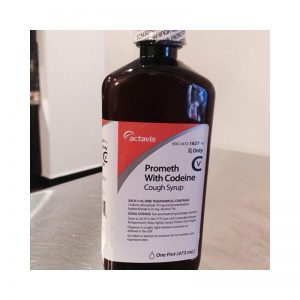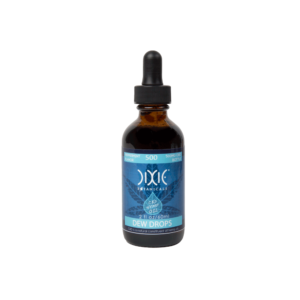Be the first to review “Actavis promethazine cough syrup with codeine” Cancel reply
Actavis promethazine cough syrup with codeine
$200.00
Actavis promethazine cough syrup with codeine
Actavis promethazine cough syrup with codeine, This combination medication is used to treat symptoms caused by the common cold, flu, allergies, or other breathing illnesses (e.g., sinusitis, bronchitis). Promethazine is an antihistamine that relieves watery eyes, itchy eyes/nose/throat, runny nose, and sneezing. Codeine is an opioid cough suppressant (antitussive) that affects a certain part of the brain, reducing the urge to cough.
Do not use this product in children younger than 18 years. There is a risk of serious (rarely fatal) side effects, such as breathing problems.
Cough-and-cold products do not cure colds. Cough due to a common cold often does not need to be treated with medicine. Ask your doctor or pharmacist about other ways to relieve cough and cold symptoms, such as drinking enough fluids, using a humidifier, or saline nose drops/spray. Actavis promethazine cough syrup with codeine
How to use Promethazine-Codeine
Read the Medication Guide provided by your pharmacist before you start taking codeine/promethazine and each time you get a refill. If you have any questions, ask your doctor or pharmacist.
Take this medication by mouth with or without food, usually every 4 to 6 hours as needed with a full glass of water (8 ounces or 240 milliliters) or as directed by your doctor. This medication can be taken with food if stomach upset occurs. Drink plenty of fluids when you use this medication unless otherwise directed by your doctor.
Use a medication-measuring device to carefully measure the prescribed dose. Do not use a household spoon.
Do not increase your dose or use this product more often or for longer than prescribed. Your condition will not improve any faster, and your risk of side effects will increase.
This medication may cause withdrawal reactions, especially if it has been used regularly for a long time or in high doses. In such cases, withdrawal symptoms (such as anxiety, restlessness, sweating, shaking chills, nausea, vomiting, and diarrhea) may occur if you suddenly stop using this medication. To prevent withdrawal reactions, your doctor may reduce your dose gradually. Consult your doctor or pharmacist for more details, and report any withdrawal reactions right away.
Though it helps many people, this medication has a risk for abuse and may sometimes cause addiction. This risk may be higher if you have a substance use disorder (such as overuse of or addiction to drugs/alcohol). Take this medication exactly as prescribed to lower the risk of addiction. Ask your doctor or pharmacist for more details.
When used for an extended time, this medication may not work as well and may require different dosing. Talk with your doctor if this medication stops working well.
Tell your doctor if your condition persists for more than 1 week, if it worsens, or if it occurs with fever, rash, or persistent headache. These may be symptoms of a serious medical problem and should be checked by a doctor.
Side Effects
See also Warning section.
Drowsiness, dizziness, headache, lightheadedness, blurred vision, upset stomach, nausea, constipation, or dry mouth may occur. If any of these effects persist or worsen, tell your doctor or pharmacist promptly.
This medication can dry up and thicken mucus in your lungs, making it more difficult to breathe and clear your lungs. To help prevent this effect, drink plenty of fluids unless otherwise directed by your doctor.
Remember that your doctor has prescribed this medication because he or she has judged that the benefit to you is greater than the risk of side effects. Many people using this medication do not have serious side effects.
Tell your doctor right away if you have any serious side effects, including: involuntary behaviors/movements (e.g., fixed upward stare, neck twisting, tongue movements), mental/mood changes (e.g., hallucinations, confusion), ringing in the ears, shaking (tremors), trouble urinating, weakness.
Get medical help right away if you have any very serious side effects, including: easy bruising/bleeding, slow heartbeat, persistent nausea/vomiting, severe abdominal pain, yellowing eyes/skin, seizure.
Codeine is changed into a strong opioid drug (morphine) in your body. In some people, this change happens faster and more completely than usual, which increases the risk of very seriousside effects. Get medical help right away if you notice any of the following: slow/shallow breathing, severe drowsiness/difficulty waking up, confusion.
This medication may rarely cause a very serious condition called neuroleptic malignant syndrome (NMS). Get medical help right away if you have any of the following symptoms: fever, muscle stiffness/pain/tenderness/weakness, severe tiredness, severe confusion, sweating, fast/irregular heartbeat, dark urine, signs of kidney problems (such as change in the amount of urine).
A very serious allergic reaction to this drug is rare. However, get medical help right away if you notice any symptoms of a serious allergic reaction, including: rash, itching/swelling (especially of the face/tongue/throat), severe dizziness, trouble breathing.
This is not a complete list of possible side effects. If you notice other side effects not listed above, contact your doctor or pharmacist.
Precautions
See also Warning section.
Before taking this medication, tell your doctor or pharmacist if you are allergic to any of its ingredients; or to opioid pain relievers (e.g., morphine); or if you have any other allergies. This product may contain inactive ingredients, which can cause allergic reactions or other problems. Talk to your pharmacist for more details.
Before using this medication, tell your doctor or pharmacist your medical history, especially of: abdominal problems (e.g., chronic constipation, ileus, pancreatitis), gallbladder disease, adrenal gland problem (e.g., Addison’s disease), blood/immune system problems (e.g., bone marrow depression), brain disorders (e.g., seizures, head injury, tumor, increased intracranial pressure), breathing problems (e.g., asthma, emphysema, sleep apnea), diabetes, glaucoma, heart problems (e.g., angina, irregular heartbeat), high blood pressure, liver disease, mental/mood problems (e.g., depression, psychosis), obesity, a certain spinal problem (kyphoscoliosis), stomach/intestinal problems (e.g., ulcers, blockage), thyroid disease, trouble urinating (e.g., due to enlarged prostate or urethral stricture), personal or family history of a substance use disorder (such as overuse of or addiction to drugs/alcohol).
This drug may make you dizzy or drowsy. Alcohol or marijuana can make you more dizzy or drowsy. Do not drive, use machinery, or do anything that needs alertness until you can do it safely. Avoid alcoholic beverages. Talk to your doctor if you are using marijuana.
To reduce dizziness and lightheadedness, get up slowly when rising from a sitting or lying position.
This medication may make you more sensitive to the sun. Limit your time in the sun. Avoid tanning booths and sunlamps. Use sunscreen and wear protective clothing when outdoors. Tell your doctor right away if you get sunburned or have skin blisters/redness. Actavis promethazine cough syrup
This medication may contain sugar and/or alcohol. Caution is advised if you have diabetes, alcohol dependence, or liver disease. Ask your doctor or pharmacist about using this product safely.
Older adults may be more sensitive to the side effects of this drug, especially confusion, dizziness, drowsiness, constipation, trouble urinating, and slow/shallow breathing. Confusion, dizziness, and drowsiness can increase the risk of falling.
Before using this medication, women of childbearing age should talk with their doctor(s) about the risks and benefits. Tell your doctor if you are pregnant or if you plan to become pregnant. During pregnancy, this medication should be used only when clearly needed. It may slightly increase the risk of birth defects if used during the first two months of pregnancy. Also, using it for a long time or in high doses near the expected delivery date may harm the unborn baby. To lessen the risk, take the smallest effective dose for the shortest possible time. Tell the doctor right away if you notice any symptoms in your newborn baby such as slow/shallow breathing, irritability, abnormal/persistent crying, vomiting, or diarrhea.
This medication passes into breast milk and may have undesirable effects on a nursing infant, such as unusual sleepiness, difficulty feeding, trouble breathing, or unusual limpness. Breast-feeding while using this drug is not recommended. Consult your doctor before breast-feeding. Actavis promethazine cough syrup
Overdose
If someone has overdosed and has serious symptoms such as passing out or trouble breathing, call 911. Otherwise, call a poison control center right away. US residents can call their local poison control center at 1-800-222-1222. Canada residents can call a provincial poison control center. Symptoms of overdose may include: confusion, cold/clammy skin, fast/slow/irregular heartbeat, slow/shallow breathing, seizures, fainting, coma.
Notes
Do not share this medication with others. Sharing it is against the law.
Do not take this medication for several days before allergy testing because test results can be affected.
Missed Dose
If you are prescribed this medication on a regular schedule and miss a dose, take it as soon as you remember. If it is near the time of the next dose, skip the missed dose and resume your usual dosing schedule. Do not double the dose to catch up.
Storage
Store at room temperature away from light and moisture. Do not store in the bathroom. Do not freeze. Keep all medications away from children and pets. Actavis promethazine cough syrup




Reviews
There are no reviews yet.